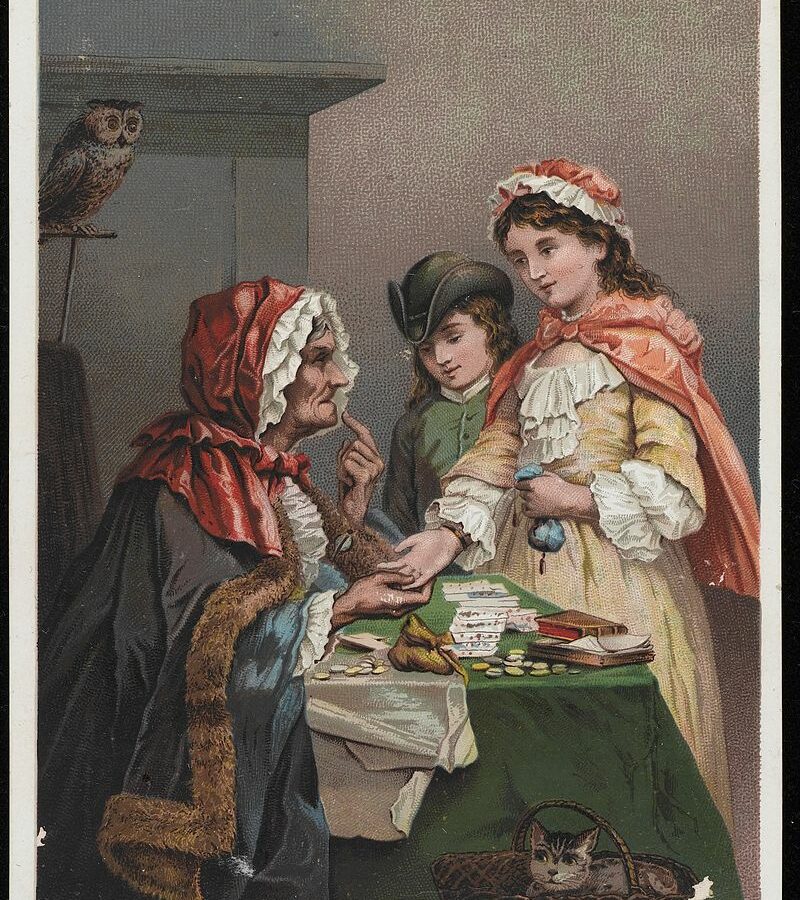The modern-day oracle


(Mostlyrecords, Greeblie, Frankieleon, Zaneology )
As a young teenager, I begged my parents to buy me the Magic-8 ball. You could ask the ball yes-no questions, and then, when you turned it upside down, one of 20 possible answers would float up against the small plastic window – ‘Signs point to yes’, ‘My reply is no’, ‘Better not tell you now’, etc. My parents steadfastly refused to buy it – it was a waste of money, as I would get bored of it in no time. To their displeasure, one of my friends bought it for me on my birthday. It was to become a fixture in my room for the next ten years. My friends and I never tired of asking it all sorts of questions, from things we seriously wanted to know: ‘Will I pass my test?’, ‘Does X fancy me?’, to silly jokes such as, ‘Are you a stupid ball?’ (to which the ball answered ‘As I see it yes’), that left us rolling on the floor with laughter. The ball’s obvious inability to predict the future – asking it the same question many times would give many different answers – never got in the way of our fun, nor did it stop an excited tingle when it gave the answer we hoped for.
There’s plenty to read on the internet about the corona virus. Facts and figures about the number of people infected, the number of hospital admissions, graphs of the geographical spread, the development over time, the distribution over age groups. Explanations of where the virus came from, how it spreads, how it affects the lungs. Updates on the latest measures world-wide, how people are coping with them, analysis of their effectivity. Reports of creativity, innovation and kindness, or stupidity, recklessness and ignorance.
And predictions. Lots of predictions. We all want to know how this is going to turn out, and there is a steady stream of people willing to oblige us. The schools will stay shut until the May holiday, no – the summer holiday. Restrictions could last six months – no, two years, – no, we should adjust to a permanent change in society. A vaccine is the only hope to end lockdown, but it won’t be ready for a year, no – 18 months – and actually, we shouldn’t count on it at all. And these are only the ones for which I can find quotable sources. My mind is full of other predictions I have read, half-remembered, cut loose from their sources, cluttering up my mind with vague could-bes and unsettled feelings.
It’s not surprising that the predictions vary so much. There are so many unknowns – how infectious is the virus, can it be passed on by children, are people who have had it immune, and so on. The crisis covers so many different countries, each with their own demographics, economy, culture and approach to tackling the problem. It also encompasses so many areas of life – health, finance, education, food supply, manufacturing, transport, to mention only a few. Each area has their experts, naturally making predictions based on their own discipline – virologists, epidemiologists, economists, school heads, airline bosses.

Michal Bělka / CC BY-SA
Whatever the skills of our leaders may be in weighing up all these data sources to reach a good decision, as an ordinary member of the public, I don’t stand a chance. I’m not even in a position to judge the expertise of the experts. What I would like to have, would be the equivalent of a weather forecast. When I’m planning what to do tomorrow, I go to a weather website, and it tells me it is expected to be sunny with clouds, 11 degrees Celsius. All the underlying complexity of satellite images, mathematical models and expert opinions of meteorologists is hidden away. Over the years, I’ve got used to taking the weather forecast with a grain of salt, but even so, its simplicity makes it possible for me to comprehend it well enough to make my plans. Sadly, while online weather forecasts abound, there is no service on the internet that will pull together all the corona data and opinions to give me a simple forecast. This is not surprising, as combining all these areas into one predictive model is a herculean task. Perhaps that’s why a large part of the internet abandons science and expertise, and any grounding in facts at all for that matter, to make predictions based on nothing more than gut feelings or ‘my mate says’.
Beyond a simple forecast, what I really long for is a personal forecast. Not: ‘how many people will be infected?’, ‘how many will die?’, ‘how many jobs will be lost?’. But: ‘how many people I know will be infected?’, ‘will I lose someone I love?’, and ‘will I lose my job?’. Along with the smaller, but still important questions, such as ‘will we lose the money and effort spent booking our summer holiday?’, ‘will we cope with the pressures of home-schooling and homeworking?’ and ‘what effect will this all have on my children?’. Intellectually, I know that no one, not even the best expert in the world, can answer these questions. But the desire to have a personal prediction remains, just like all those people throughout history who have cast auguries, visited an oracle, stuck a pin in the bible, or read their daily horoscope.
What all fortune-telling methods have in common, is that they claim arcane knowledge, but then produce vague, often conflicting, answers that require a great deal of interpretation. Those wanting a prophecy have faith in the authority of their oracle, and so interpret all those confusing fragments in such a way that the prophecy fits their own situation. By never giving a clear answer, the oracle ensures they can also never be proven to have given a wrong prediction.
As an oracle, the internet checks all the boxes. It has an aura of authority and power, as ‘the repository of all human wisdom’. I can just type my question straight into Google, and let the answer be plucked out of the vast array of sites for me, materialising on the screen as if by magic. At the same time, the immense size, complexity and contradictory nature of the internet gives it the randomness so essential to an oracle. Just as I used to keep turning my fortune-telling cue ball until it confirmed that I would marry the boy I fancied, I can keep clicking on links until I find the prediction that suits me.
Is it wrong to use the internet in this way? Horoscopes and fortune tellers are mostly seen as pretty harmless, but they can do serious damage when people become addicted to them, unable to make a single move without first asking for guidance. The particularly dangerous aspect of the internet as oracle is that it comes in disguise. When I go to a psychic, or open the paper at the horoscope page, I know exactly what I’m doing. When I surf the internet, on the other hand, I think that I am behaving rationally – doing research, keeping myself up-to-date and well-informed – when actually I want some higher authority to tell me what is going to happen. I experienced this same phenomenon years ago, when faced with a potential miscarriage. The hours I spent ‘researching’ on the internet didn’t have any practical value, there was nothing I could do to affect the outcome. What I really wanted to know was, ‘will I lose my child’ – and all the websites I read didn’t – could never – give me an answer. All they did was to bombard me with dozens of possible outcomes, both joyous and tragic, keeping me in a constant state of confused agitation – yet I was unable to stop reading.
Now, with corona, I notice the same temptation. The logical part of my mind tells me that I read expert predictions because it is good to be informed about how things are going to develop, so that I can make plans. But this is a fallacy. Knowing what the current guidelines are and what is going on now helps me in my daily decisions. The predictions, on the other hand, are of no practical use whatsoever. I sincerely hope that they are based on something more scientific than a crystal ball. All the same, even the predictions for the next few weeks are still too nebulous and contradictory to act on. Probably the schools will stay closed after the spring half-term holiday. Or they might reopen. Or they could open for only certain children – perhaps mine, perhaps not. The longer-term predictions are even less reliable – and are almost uniformly pessimistic. Reading about how it could take two years before we get back to normal, how the schools could stay closed until September, how we shouldn’t bother booking summer holidays – and, worst of all, how corona could be with us to stay – doesn’t tell me if I should cancel our hotels, make alternative plans for my father’s 70th birthday, or prepare the children for missing their Scouting summer camp. All that happens, is that it depresses me – and wastes time and energy that I could better use working out how to cope with our current circumstances.
New Year is long gone. All the same, I am making a resolution. I will keep reading about corona on the internet. But I will cease my search for a definitive prediction of the future – no such thing exists. As one very responsible expert warned about their own work: “The study should therefore be regarded as suggesting possible scenarios rather than making firm predictions.” When the scenarios start to turn into reality is time enough to start worrying about them. Until then, I have my hands full enough as it is. “Sufficient unto the day is the evil thereof”.
Ultimately, my need for a prediction is a need for comfort and reassurance. A computer screen can’t give me that. Far better is to turn to my loved ones. We don’t know the future, but we can listen to each other’s fears, offer a shoulder to cry on, and rest in the certainty that we love each other, and will get through this together.
All the same, in this current situation, I can’t help but miss my cue ball. If nothing else, it would have made a great distraction for my kids.

